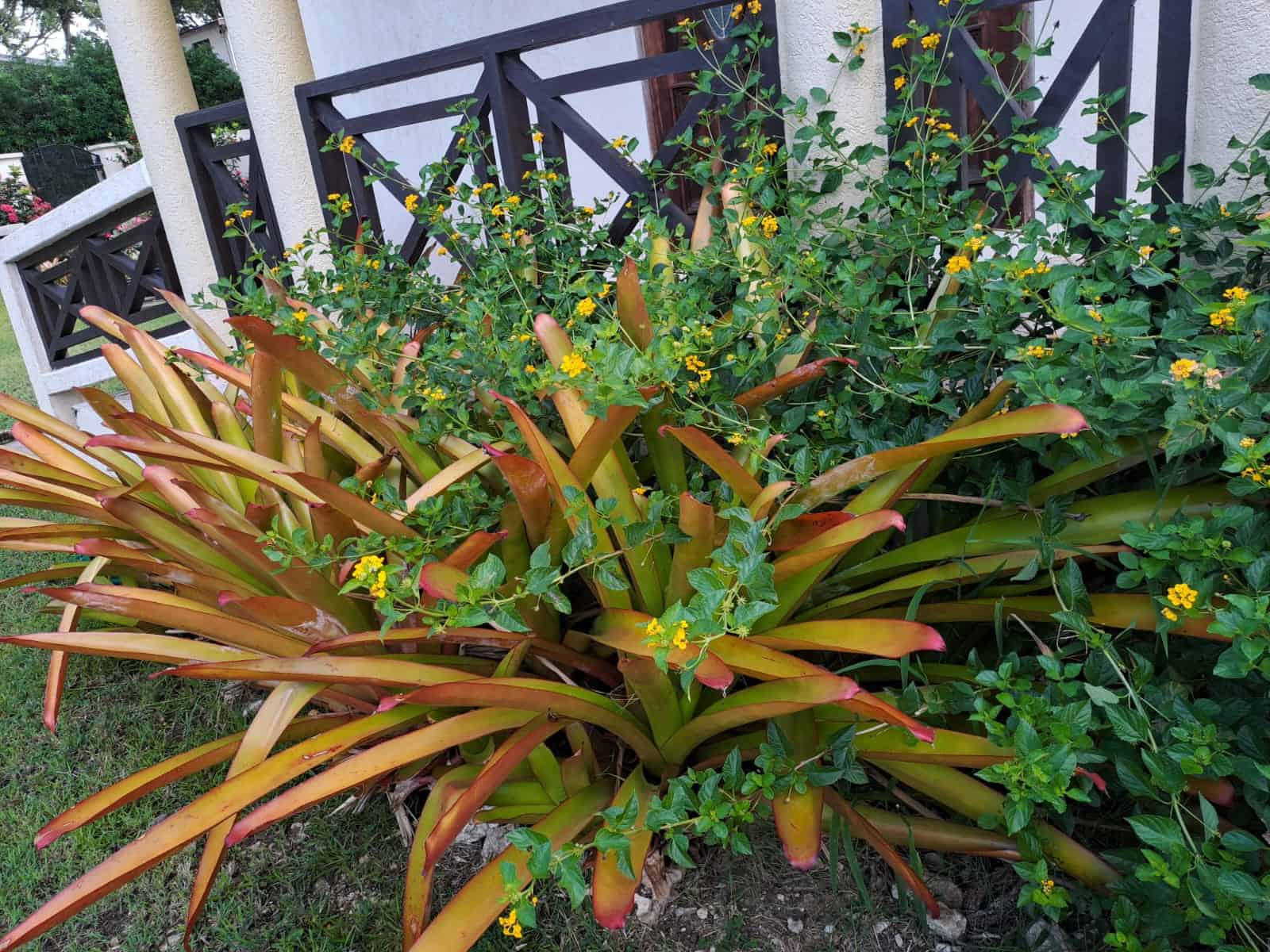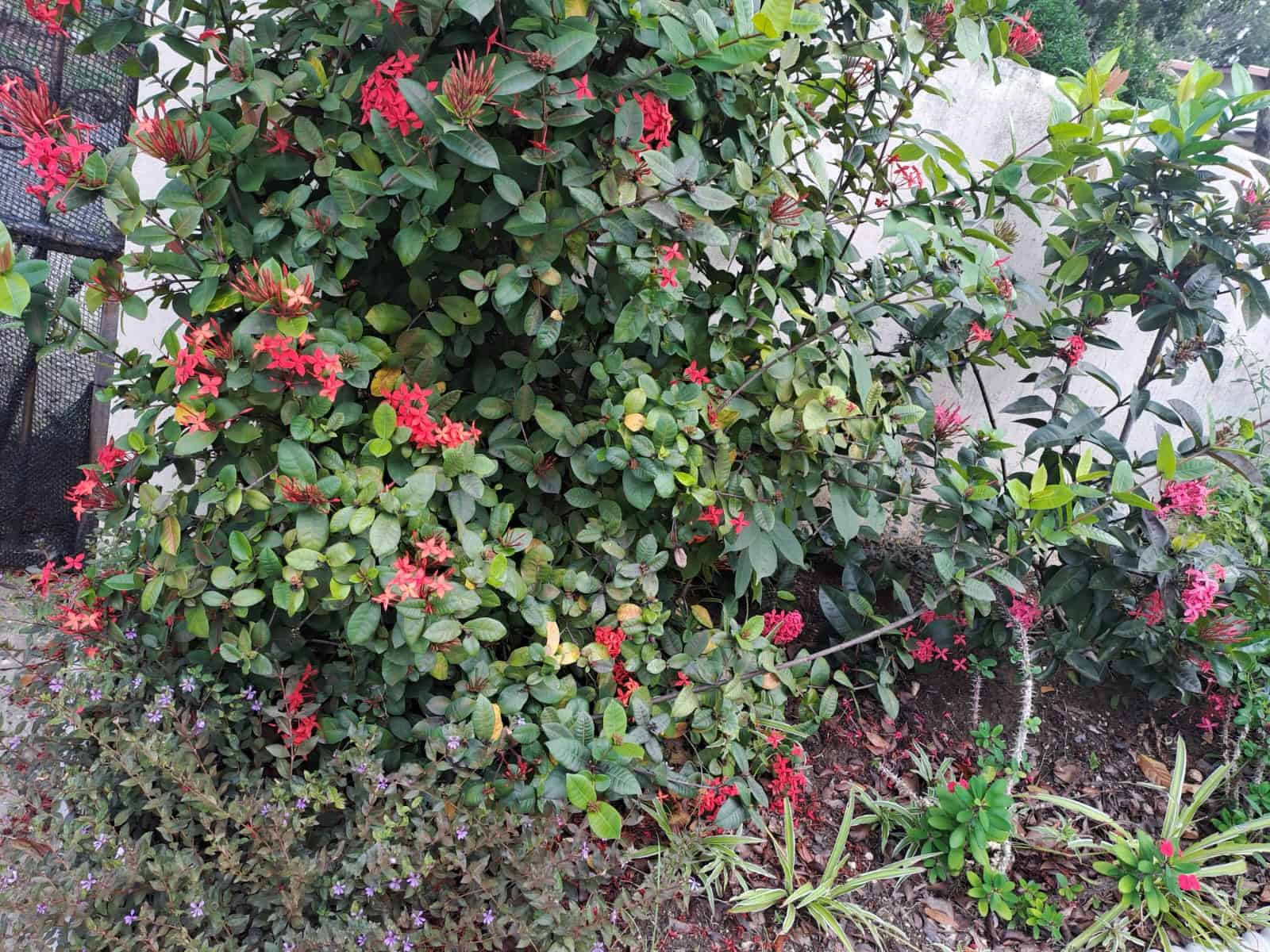Natural Ways to Keep Pests out of Your Garden

A flourishing and pests free small garden
Quick Navigation
Not everyone is lucky enough to have a green thumb. If you're one of those people who struggle with keeping plants alive, then you may want to try some natural methods to keep pests out of your garden.
I got on a call with Amber Bushman and got some great pest control tips.
By using these methods, you can keep your garden healthy and free from pests!

A pests free orange Aechmea blanchetiana
Common Pests You Might Find in a Garden
Any gardener knows that pests can quickly ruin a healthy plant. Whether it's aphids sucking the sap from leaves or caterpillars munching their way through stems, these small creatures can cause big problems. Some common garden pests include:
- Aphids: These small, pear-shaped insects are a common sight in gardens. Aphids feed on the sap of plants, weakening them and making them more susceptible to disease.
- Caterpillars: Caterpillars are the larvae of moths and butterflies. These hungry creatures can skeletonize a plant in no time, devouring leaves and stems.
- Japanese Beetles: These shiny, metallic-green beetles are destructive pests. Japanese beetles feast on the leaves of almost any type of plant, causing extensive damage.
- Slugs and Snails: Slugs and snails are soft-bodied creatures that love to eat plants. They often feed at night, leaving behind telltale slime trails.
With careful monitoring and prompt treatment, most garden pests can be controlled. By staying vigilant, gardeners can keep their plants healthy and thriving.
4 Natural Ways to Keep Pests Out of Your Garden
There are many ways to keep pests out of your garden, but some of them can be harsh and chemical-based. Here are a few natural ways to keep those critters at bay - but know that, if you’re still struggling to get these pests under control, you can always call a pest management specialist, too.
1. Use Dish Soap
One natural way to deter pests is to use dish soap. Dish soap contains surfactants that can break down the waxy protective coating on an insect's body, leading to dehydration and death.
When diluted with water, dish soap can be used as a safe and effective insecticide. Simply mix one tablespoon of dish soap with one quart of water, and spray it onto the affected plants. The soap will kill most common garden pests, including aphids, beetles, and caterpillars.
For best results, reapply every few days or after rain. With regular applications, you can keep your garden free of pests all season long.
2. Employ Some Good Garden Bugs
Another solution is to encourage beneficial insects to take up residence in your garden.
Ladybugs, for example, are voracious predators of aphids and other small insects. Lacewings and parasitic wasps help to control caterpillars and other destructive larvae. And beneficial nematodes attack a wide range of soil-borne pests.
By creating a habitat that attracts these helpful creatures, you can effectively control pests without using any chemicals. In addition, beneficial insects provide an important food source for birds and other wildlife. So creating a garden that is friendly to good bugs can have many benefits for both people and nature.
3. Try Companion Planting
If you're having trouble with pests in your garden, you may want to try a technique called companion planting. Companion planting is the practice of growing different types of plants together in order to deter pests.
For example, some gardeners plant onions next to their tomatoes to keep away aphids. Others plant basil near their roses to ward off Japanese Beetles. In addition to deterring pests, companion plants can also help to improve the overall health of your garden. Certain plants will release nutrients into the soil that other plants can benefit from.
As a result, companion planting can be a great way to create a more balanced and healthy ecosystem in your garden.
4. Improve the Garden Soil
Pests are attracted to weak and dying plants, as well as to gardens with poor soil. By improving the quality of the soil, gardeners can make their plants less susceptible to pest attacks.
This can be done by adding compost and other organic matter to the soil, which will help to improve drainage and aeration. In addition, mulching can help to discourage pests by blocking their access to the roots of plants.

Pests free Jungle geranium (Ixora coccinea)
Final Thoughts
If you're looking for a more natural way to keep pests out of your garden, try some of these tips. They may take a little more time and effort than using pesticides, but they'll be worth it in the end! Have you tried any of these methods?
Do you have any additional tips for preventing pests to share? Let us know in the comments below.
---
Amber has been in the pest control industry for 18 years now...13 of them have been with Reliant Pest Management. She is a licensed certified commercial applicator in the state of Texas. Amber’s background is mostly in office management and administration, but she enjoys going out in the field from time to time and serving customers by protecting their homes. Amber loves people and bugs and pest management has them both!
Related Articles:
